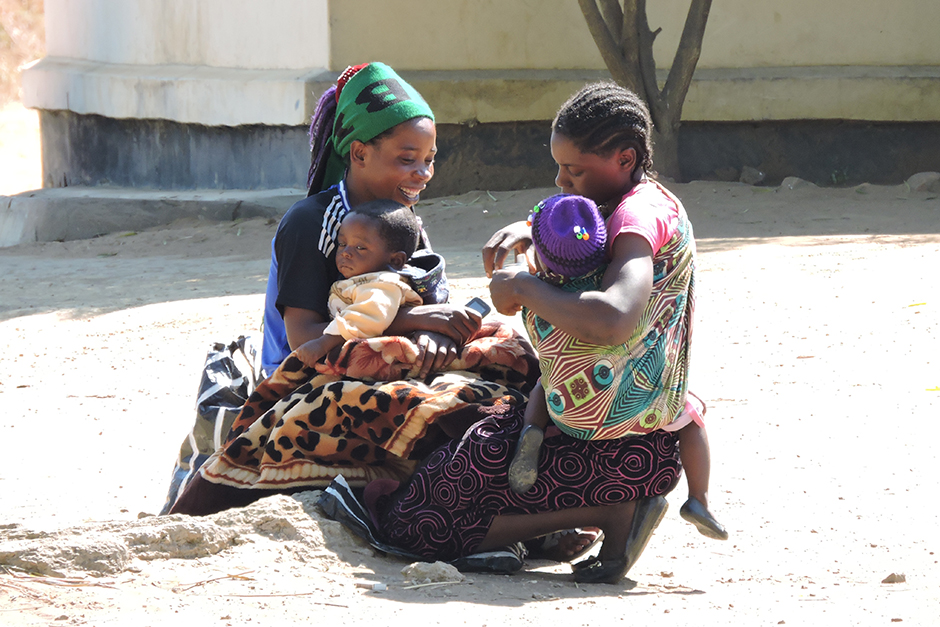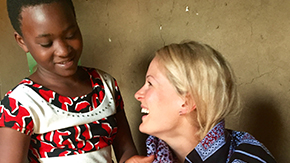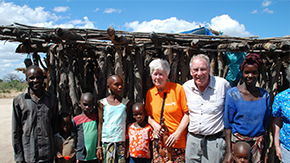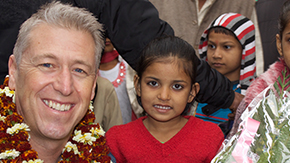On paper, this afternoon within our week long trip to the projects in the Keembe District of Zambia didn’t sound like the most engaging of visits. How wrong I was! We arrived at the hut to be greeted by several brightly dressed ladies, eager to share their story. World Vision UK sponsors, through their monthly donations, had provided the funding for a man to start up saver groups in his area. This has encouraged the habits of saving and he gives advice and helps to engender an entrepreneurial spirit within communities. This particular group were the most successful that he had set up and when we heard their testimonies of how it had changed their lives, it was easy to see why.
 Fifteen women joined the group at the outset. Each had to put in 20 KW, the equivalent of £2. A chairman and treasurer were appointed and a locked box with three keys was provided to hold all of the women’s cash. If someone wanted to borrow money, they were given a set period of time to pay it back, adding on some interest each time. The pot then grew month on month and now they pay in 200 KW, about £20 a month. Amazingly, they also pay in 20 KW per month towards a social fund if anyone is in need – the welfare state, provided by a small group of intrepid women. As the pot grew, they divided out the funds if needed, adding interest each time. They shared their micro business stories with us as we marvelled at their support of one another.
Fifteen women joined the group at the outset. Each had to put in 20 KW, the equivalent of £2. A chairman and treasurer were appointed and a locked box with three keys was provided to hold all of the women’s cash. If someone wanted to borrow money, they were given a set period of time to pay it back, adding on some interest each time. The pot then grew month on month and now they pay in 200 KW, about £20 a month. Amazingly, they also pay in 20 KW per month towards a social fund if anyone is in need – the welfare state, provided by a small group of intrepid women. As the pot grew, they divided out the funds if needed, adding interest each time. They shared their micro business stories with us as we marvelled at their support of one another.
• One buys goats and sells them at the Angolan border.
• Another buys material in Lusaka which she then makes into school uniforms, selling for about 25 – 35 KW (£2.50 - £3.00)
• One lady cooks corn fritters and sells them door to door in her area
• Two women buy fish from a swamp nearby and sell them
• A widow sews clothes for her village
• Another buys goods wholesale and sells them from her home
 Without exception, they proudly told us that this had transformed their lives. Most used their income to help provide for their families, especially paying for school fees. In Zambia, primary education is free but secondary is fee paying and the schools are very few and far between. Many children don’t continue with their education, as families can’t afford to send them far away to board. This newfound ability to pay for children to go to school, especially girls, will have a great impact on the future for rural Zambians to improve their lives. How we take our education for granted in the West!
Without exception, they proudly told us that this had transformed their lives. Most used their income to help provide for their families, especially paying for school fees. In Zambia, primary education is free but secondary is fee paying and the schools are very few and far between. Many children don’t continue with their education, as families can’t afford to send them far away to board. This newfound ability to pay for children to go to school, especially girls, will have a great impact on the future for rural Zambians to improve their lives. How we take our education for granted in the West!
One of the ladies had bought a cow with her profits and could therefore provide milk for her children, giving them a nutritious breakfast before they run off to school, and she sells the excess in her village.
Unusually, the hut where we met this group was connected to electricity so our next treat was a demonstration by the school uniform making entrepreneur. World Vision had bought three sewing machines to encourage the businesses and she was keen to show off her new skills with an electric machine. After initial problems threading the needle in the gloom, she showed us how she made a shirt from her prepared material.
 What was very impressive was the fact that they now pay the man who helped them set up the group and World Vision quite rightly has bowed out. This, to my mind, is exactly how it should be with a charity.
What was very impressive was the fact that they now pay the man who helped them set up the group and World Vision quite rightly has bowed out. This, to my mind, is exactly how it should be with a charity.
World Vision has helped them to help themselves in a way that will inspire future Zambians to create their own businesses.
As an added bonus they provide each other with great support and advice - and it is a great chance for a good natter. Trust is obviously paramount, as banks are not used thus engendering further reliance on each other.
We left to the sound of singing and dancing after an inspiring afternoon. This truly is girl power, Spice Girls, eat your heart out!
Do you, like Tassie, sponsor a child with World Vision? Have you ever thought about visiting? Find out more about meeting you sponsored child »





